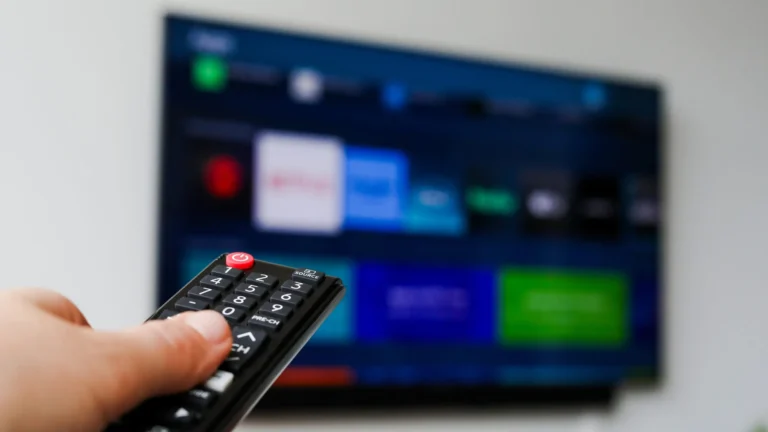Smart Health Monitoring Devices: Revolutionizing Personal Healthcare
Advancements in technology have dramatically transformed healthcare, making it more accessible, efficient, and personalized. Among the most notable innovations are smart health monitoring devices, which empower individuals to track, analyze, and manage their health in real time. These devices are reshaping how people approach wellness, offering insights that were once only available in medical facilities. This article explores the rise of smart health monitoring devices, their benefits, applications, and the future of personal healthcare.
Understanding Smart Health Monitoring Devices
Smart health monitoring devices are electronic gadgets equipped with sensors, software, and connectivity features that track physiological and health-related data. They provide real-time feedback to users and, in many cases, integrate with smartphones, apps, or cloud platforms for comprehensive monitoring. Common functionalities include:
- Measuring vital signs such as heart rate, blood pressure, and oxygen levels.
- Tracking physical activity, sleep, and calories burned.
- Monitoring chronic conditions like diabetes and cardiovascular diseases.
- Providing alerts and insights for proactive health management.
These devices are designed for convenience, accuracy, and ease of use, making healthcare more proactive rather than reactive.
Types of Smart Health Monitoring Devices
1. Smartwatches and Fitness Trackers
Smartwatches and fitness bands are among the most popular health monitoring devices. Key features include:
- Heart Rate Monitoring: Continuous tracking of heart rate during workouts and daily activities.
- Sleep Analysis: Detecting sleep patterns, quality, and duration.
- Step Counting and Activity Tracking: Monitoring daily movement and encouraging physical activity.
- Stress Management: Some devices analyze heart rate variability to provide stress insights.
Devices like the Apple Watch, Fitbit, and Garmin wearables are examples of how technology integrates fitness and health tracking.
2. Smart Blood Pressure Monitors
High blood pressure is a leading cause of cardiovascular diseases. Smart blood pressure monitors help users:
- Measure blood pressure at home accurately.
- Store readings digitally for long-term tracking.
- Share results with healthcare providers through apps.
By providing consistent monitoring, these devices help in early detection and management of hypertension.
3. Glucose Monitoring Devices
For individuals with diabetes, glucose monitoring is crucial. Smart glucose monitors offer:
- Continuous glucose tracking without frequent finger pricks.
- Real-time alerts for high or low blood sugar levels.
- Integration with smartphones for trend analysis and reporting.
Devices like Dexcom G6 and FreeStyle Libre are revolutionizing diabetes management with ease and accuracy.
See also: Augmented Reality: Transforming User Experiences
4. Smart Thermometers
Smart thermometers provide instant, accurate temperature readings and can:
- Record body temperature trends over time.
- Send alerts for fever spikes.
- Integrate with mobile apps for tracking multiple family members.
These devices are particularly useful for parents monitoring children or for elderly care.
5. Wearable ECG and Heart Monitors
Advanced wearables now offer electrocardiogram (ECG) functionality, allowing:
- Detection of irregular heart rhythms or arrhythmias.
- Continuous heart monitoring for patients at risk of cardiac conditions.
- Integration with health apps to share data with doctors.
This technology brings hospital-grade cardiac monitoring to the wrist, enhancing early detection of heart issues.
Benefits of Smart Health Monitoring Devices
1. Early Detection and Prevention
One of the most significant benefits of smart health devices is early detection. Continuous monitoring allows users to identify irregularities before they become serious health issues. For example, wearable ECG devices can alert users to atrial fibrillation early, potentially preventing strokes.
2. Personalized Health Insights
Smart devices provide insights tailored to individual needs, helping users understand how lifestyle choices, diet, and exercise impact their health. Data-driven recommendations empower individuals to make informed decisions for better well-being.
3. Convenience and Accessibility
By enabling at-home monitoring, these devices reduce the need for frequent doctor visits, making healthcare more convenient. Users can track health metrics anytime, anywhere, without relying solely on clinical settings.
4. Improved Chronic Disease Management
For people with chronic conditions such as diabetes, hypertension, or heart disease, consistent monitoring is critical. Smart devices simplify this process, ensuring timely interventions and better disease management.
5. Integration with Telemedicine
Many smart devices sync with telemedicine platforms, allowing healthcare professionals to monitor patients remotely. This integration improves healthcare accessibility, especially in rural or underserved areas.
Challenges and Considerations
While smart health monitoring devices offer numerous benefits, there are some challenges:
- Accuracy Concerns: Not all devices match the precision of clinical-grade equipment.
- Privacy and Data Security: Health data is sensitive, and breaches could compromise personal information.
- Cost: High-quality devices may be expensive, limiting access for some users.
- Over-Reliance: Users may depend too heavily on devices, potentially neglecting professional medical advice.
Addressing these challenges requires regulatory oversight, secure data protocols, and education on responsible use.
Future of Smart Health Monitoring Devices
The future of personal healthcare is closely linked to advancements in smart health devices. Emerging trends include:
- AI-Powered Health Insights: Artificial intelligence analyzing data to predict potential health risks.
- Integration with IoT: Smart homes connecting health devices for holistic wellness management.
- Advanced Sensors: Non-invasive monitoring of blood sugar, hydration, and other vital parameters.
- Personalized Medicine: Devices providing recommendations based on genetic and lifestyle data.
As technology continues to evolve, smart health monitoring devices will become more precise, affordable, and integrated into daily life.
Tips for Choosing the Right Smart Health Device
When selecting a smart health monitoring device, consider the following:
- Accuracy and Reliability: Check clinical validation and reviews.
- Ease of Use: Ensure the device is user-friendly and compatible with your smartphone or ecosystem.
- Battery Life: Longer battery life ensures uninterrupted monitoring.
- Data Privacy: Choose devices with secure data encryption and privacy policies.
- Integration: Consider compatibility with health apps, telemedicine platforms, or other devices.
Selecting the right device ensures that you get the maximum benefit without compromising safety or convenience.
Conclusion
Smart health monitoring devices are transforming personal healthcare, empowering individuals to take charge of their well-being. From smartwatches and blood pressure monitors to wearable ECGs and glucose trackers, these devices offer convenience, real-time insights, and proactive health management. While challenges like cost and data privacy remain, the benefits—including early detection, chronic disease management, and personalized health insights—make these devices indispensable tools in modern healthcare. As technology continues to advance, smart health monitoring devices will play an increasingly vital role in creating a healthier, more connected, and proactive society.






